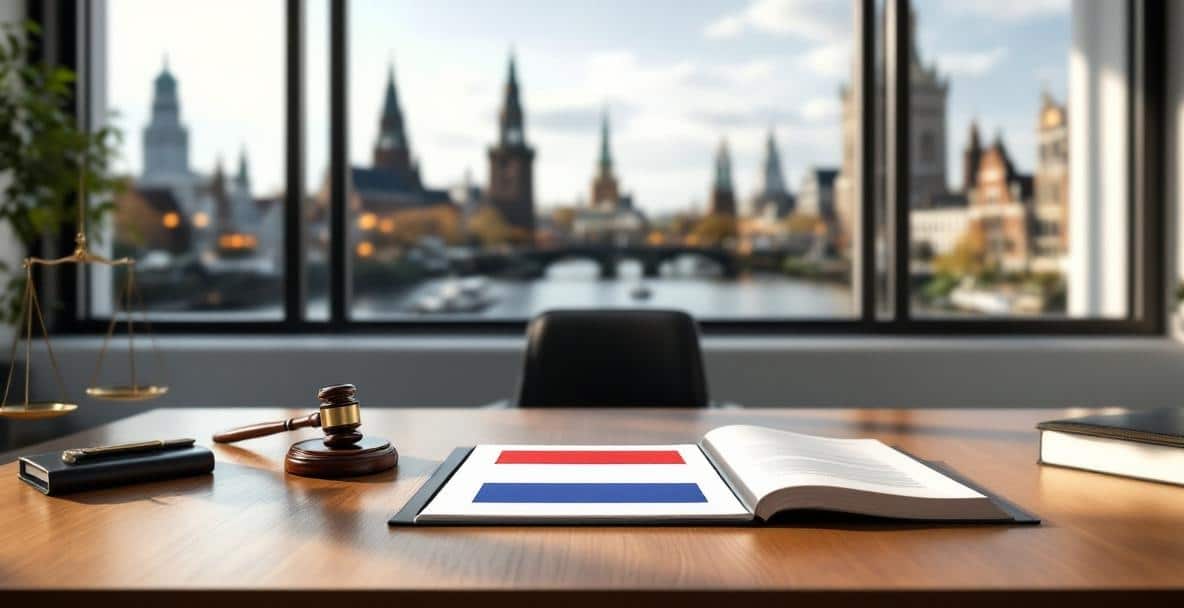Getting through Dutch litigation law may feel like untangling a knot. If you face a dispute or are part of a company fighting a legal battle, knowing the ins and outs of the Dutch legal system can make a real difference. At Law & More, we stand by you at every twist and turn so that you feel prepared and confident when stepping into a courtroom.
Getting to Know Dutch Court Rules

What Does Dutch Litigation Law Cover?
Dutch litigation law sets out the rules, steps, and customs that guide legal disputes in local courts. The Netherlands runs on a civil law system that relies on codified statutes instead of a stream of past case decisions. This means that, although legal precedents still matter, written laws form the main body of guidance. The Dutch Civil Code (Burgerlijk Wetboek) and the Dutch Code of Civil Procedure (Wetboek van Burgerlijke Rechtsvordering) offer a solid framework for starting a case, putting forward evidence, and handling courtroom hearings. Moreover, Dutch courts follow a tiered or hierarchical structure, where district courts handle first-instance matters, courts of appeal review lower court rulings, and the Supreme Court (Hoge Raad) stands as the top legal authority.
Why Knowing the Legal Scene Matters
Knowing how Dutch litigation works is key if you end up in court here. The rules are set in stone, and a missed step can hurt your chances significantly. Understanding deadlines, what counts as acceptable proof, and all the necessary formalities can be the difference between winning and losing. For those coming from abroad, this insight is even more vital because Dutch procedures can be quite different from what you might be used to. At Law & More, we have seen that clients who learn the basics early on make smarter choices about their legal strategy and documentation.
Typical Hurdles in Dutch Litigation

Tackling the Legal Process Head-On
Dutch court steps are detailed and formal. The whole process generally kicks off with a summons (dagvaarding) or a request (verzoekschrift), followed by written arguments, evidence-sharing, preliminary meetings, and, finally, a decision from the court. Time is critical in these proceedings. Deadlines for filing documents and appeals are set in stone, and missing one can have long-lasting consequences. For instance, an appeal against a district court ruling must usually be filed within three months from the decision date, a window that can vanish in the complexities of a case.
Strict rules also apply when gathering evidence. Unlike many other systems, Dutch law expects everyone to find and present their own proof. This is why planning ahead and preparing every detail is so important. Sometimes, documents need to be translated into Dutch, which can add another hurdle for those dealing with international matters.
Every step in the process has its own set of guidelines, so careful, thorough preparation becomes essential. Making sure you understand and follow every requirement not only helps present your case clearly but also builds credibility in the eyes of the court.
Overcoming Cultural and Language Hurdles
When you are not from the Netherlands, cultural differences can add extra layers of challenge during litigation. The Dutch are known for their directness, efficiency, and practicality. These traits, although refreshing, might differ from what you expect based on your own country’s approach. Taking time to grasp these differences will help you adjust your communication and get your point across without misunderstandings.
Language can be another stumbling block. Many legal professionals here speak English, yet court sessions are held in Dutch and official papers need to be either in Dutch or certified translations must be provided. A slight error in translation or an unclear document might overshadow the strength of your argument. This means that extra care is needed if English is not your first language.
Cross-border disputes add further complications relating to jurisdiction and which laws apply. Sorting out which court gets to hear your case and under what rules means you might need advice from someone who knows international legal nuances and EU regulations.
Effective Ways to Handle Litigation
Picking the Right Lawyer for Your Situation
Choosing the right lawyer is a crucial move when facing court battles in the Netherlands. A savvy local attorney is skilled in the nuances of the legal process and can steer you clear of common pitfalls. Look for lawyers who specialize in the type of case you’re dealing with, as many firms focus on niches like corporate issues, intellectual property, or employment matters. At Law & More, our multilingual team pairs clients with the expert best suited to handle their unique challenges.
You also want a lawyer who explains tricky legal ideas in plain language, keeps you updated on every detail, and responds quickly to your questions. This is especially important if your background in Dutch legal terms is limited.
Budget is another key factor. It is wise to discuss fees right from the start, including hourly costs and any likely extra charges.
Selecting someone you can trust and talk to can make a real difference in your confidence during every stage of your legal journey.
Considering Mediation and Arbitration Options
While going to court is still common, many now see the benefits of mediation and arbitration in settling disputes. These methods often deliver quicker and more affordable outcomes with less hassle than a full-blown trial. Mediation involves a neutral third party who works with both sides to help reach an acceptable agreement. It is usually confidential, voluntary, and more relaxed than formal court hearings.
Arbitration is another option where the parties agree to let one or more arbitrators decide the matter. The Netherlands Arbitration Institute (NAI) offers solid rules and support for arbitration, which is very useful for international commercial disagreements. This route can be more flexible and private, with decisions made by experts who truly understand your industry.
When weighing your options, think about how complex your case is, how well you know the other party, the level of privacy you need, and how much time you have. At Law & More, we work closely with our clients to figure out which method fits best for their specific situation.
Getting Ready for Court: A Step-by-Step Guide
Collecting All Your Essential Documents
Solid paper trails form the base of a strong court case. Start by gathering every contract, letter, invoice, and communication that backs your claim. Organize these documents both by date and subject to build a clear, comprehensive evidence portfolio. Every piece of written evidence can speak volumes in court.
Written exchanges like emails, letters, and even text messages often hold a lot of sway and should be kept in their original form. These records can prove crucial when explaining your side of the story. Taking the time to ensure accuracy will help make your case more persuasive.
If your documents are in another language, remember that they might need a certified translation and sometimes even legal authentication. This extra step is vital to meet Dutch court standards, and we are here to help you navigate this process smoothly.
Finally, outline a timeline of events that matter to your situation. This chronology not only ensures no significant detail is missed but also serves as a handy reference when preparing your arguments for the court.
Knowing Courtroom Manners and What to Expect
Dutch courtrooms have their own set of behaviors and rules, and understanding these can work in your favor. Following these protocols shows respect and can leave a better impression on everyone involved. It helps to know what to expect even if it feels a bit different from your home country’s practices.
Dress smart and neat when you head to court. While there is no insistence on fancy clothes, business attire shows respect and readiness. Judges here wear robes, and a proper dress code signals that you take the process seriously.
When speaking in court, address the judge as “mijnheer/mevrouw de rechter” or “edelachtbare.” If several judges are present, the group is referred to as “edelachtbaar college.” Such respectful addresses play an important part in creating a positive atmosphere.
Court sessions are usually brief and to the point. Judges ask clear questions and expect answers that get straight to the issue. It helps to be ready with focused responses rather than long-winded explanations.
Dutch judges actively manage cases, which means you should prepare for direct interactions. Preparing clear points in advance can assist in making your argument strong.
Language matters too. If Dutch is not your strong suit, arrange for a qualified interpreter early on. Even if some judges speak English in commercial cases, the official language remains Dutch, so having expert language support can prevent any miscommunication.
Wrapping Up: Handling Dutch Litigation with Confidence
What to Remember
You need to understand every detail of the court rules, cultural norms, and legal steps if you want to do well in Dutch litigation. Being well-prepared and backed by the right lawyer makes a big difference when challenges arise. Taking time to collect your documents and familiarize yourself with courtroom protocols prepares you for a smoother experience.
What to Do Next
If you expect to face legal action in the Netherlands, start getting ready now. Meet with a legal expert who can walk you through what to expect and help you decide if going to court, using mediation, or opting for arbitration is best. Don’t delay in taking steps that will safeguard your interests and put you in the best possible position.
Ready to navigate Dutch litigation with confidence? At Law & More B.V., our multilingual team of experts specializes in guiding both local and international clients through all aspects of Dutch litigation. Contact us today to discuss your legal needs and discover how our personal approach and extensive expertise can help you achieve favorable outcomes in your legal matters.
